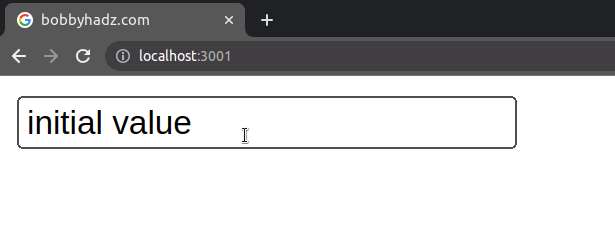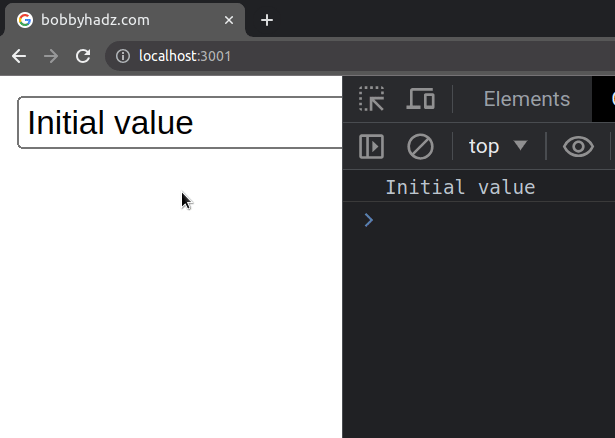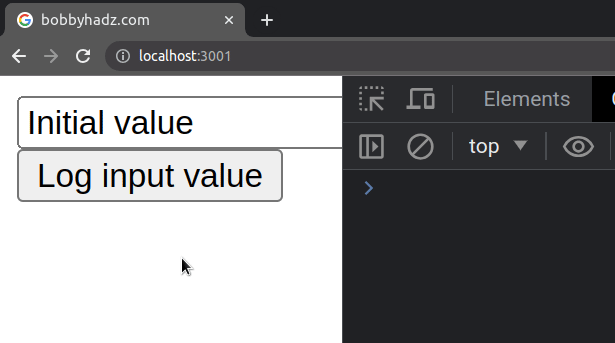Unable to type in Input field issue in React [Solved]
Last updated: Apr 6, 2024
Reading time·3 min

# Unable to type in Input field issue in React [Solved]
To solve the issue of being unable to type in an input field in React, make
sure to use the defaultValue prop instead of value for uncontrolled input
fields.
Alternatively, set an onChange prop on the field and handle the change
event.
Here is an example of how the issue occurs.
const App = () => { return ( <div> <input type="text" value="initial value" /> </div> ); }; export default App;

The problem is that the input field has a value prop set, but it doesn't
have an onChange prop that handles changes to the input's value.
# Use the onChange prop to resolve the issue
The easiest way to get around this is to use the onChange prop to handle the
change event on the input field.
import {useState} from 'react'; const App = () => { const [message, setMessage] = useState('Initial value'); // 👇️ Called every time input's value changes const handleChange = event => { setMessage(event.target.value); }; console.log(message); return ( <div> <input id="message" name="message" type="text" onChange={handleChange} value={message} /> </div> ); }; export default App;

We used the onChange prop to handle the change event on the input field. The
handleChange function is invoked every time the value of the field changes.
Notice that we store the value of the input in the state.
The useState hook can be passed an initial state value.
useState hook, e.g. const [message, setMessage] = useState('').Now every time the user types into the input field, the handleChange function
gets called and sets a new value for the message variable, which rerenders the
input field and shows the current value.
# Using an uncontrolled input field
An alternative way to handle the issue where we can't type in an input is to use an uncontrolled input field.
import {useRef} from 'react'; const App = () => { const ref = useRef(null); const handleClick = () => { // 👇️ ref.current is a reference to the input field console.log(ref.current.value); }; return ( <div> <input ref={ref} id="message" name="message" defaultValue="Initial value" type="text" /> <button onClick={handleClick}>Log input value</button> </div> ); }; export default App;

The useRef() hook can be passed an
initial value as an argument. The hook returns a mutable ref object whose
.current property is initialized to the passed argument.
current property on the ref object to get access to the input element on which we set the ref prop.When we pass a ref prop to an element, e.g. <input ref={myRef} />, React sets
the .current property of the ref object to the corresponding DOM node.
useRef hook creates a plain JavaScript object but gives you the same ref object on every render. In other words, it's pretty much a memoized object value with a .current property.It should be noted that when you change the value of the current property of
the ref, no re-renders are caused.
Now every time the user clicks on the button, the value of the input field is logged. This pattern is called uncontrolled components.
Notice that we used the defaultValue prop instead of value. The
defaultValue prop allows us to specify an initial value for the input field.
If you set the value prop on an input field, you are required to also set
the onChange prop and handle the change event, otherwise, you can't type in
the input field.

